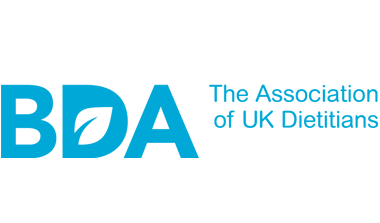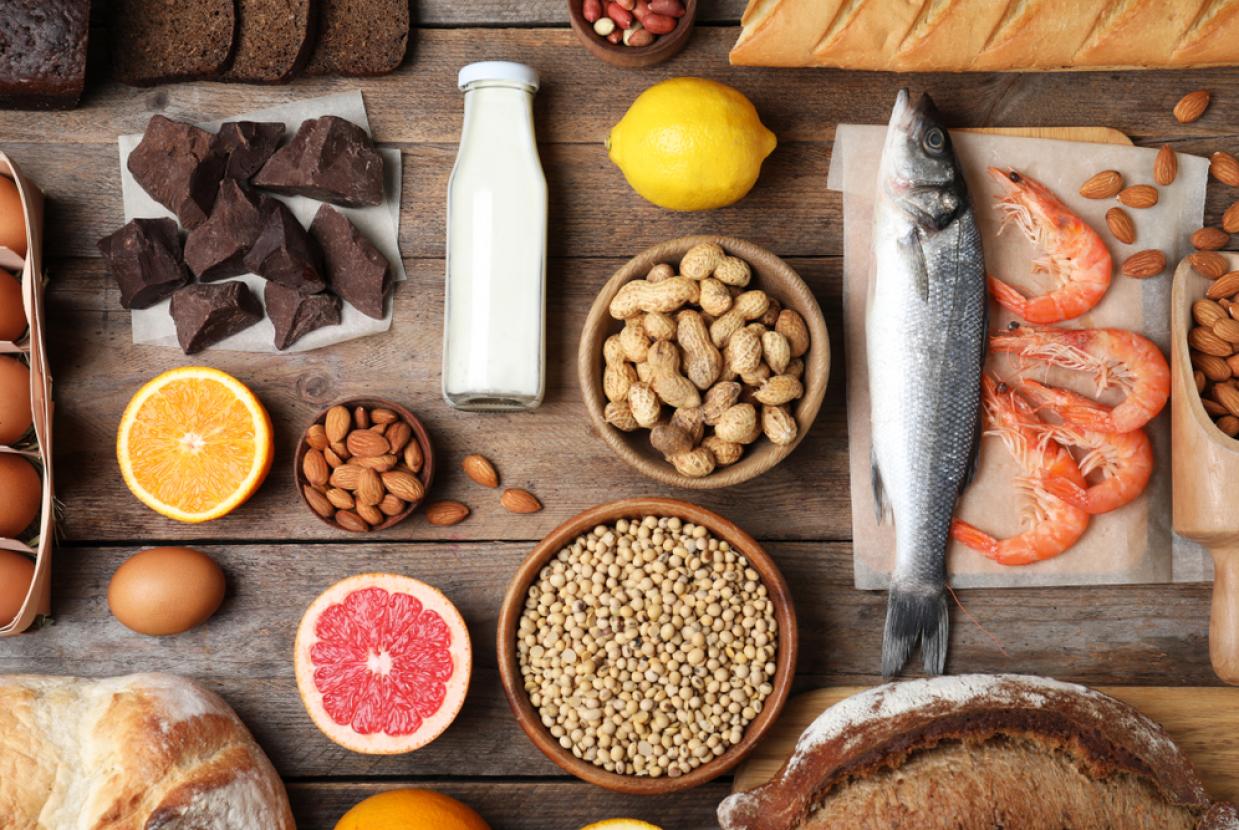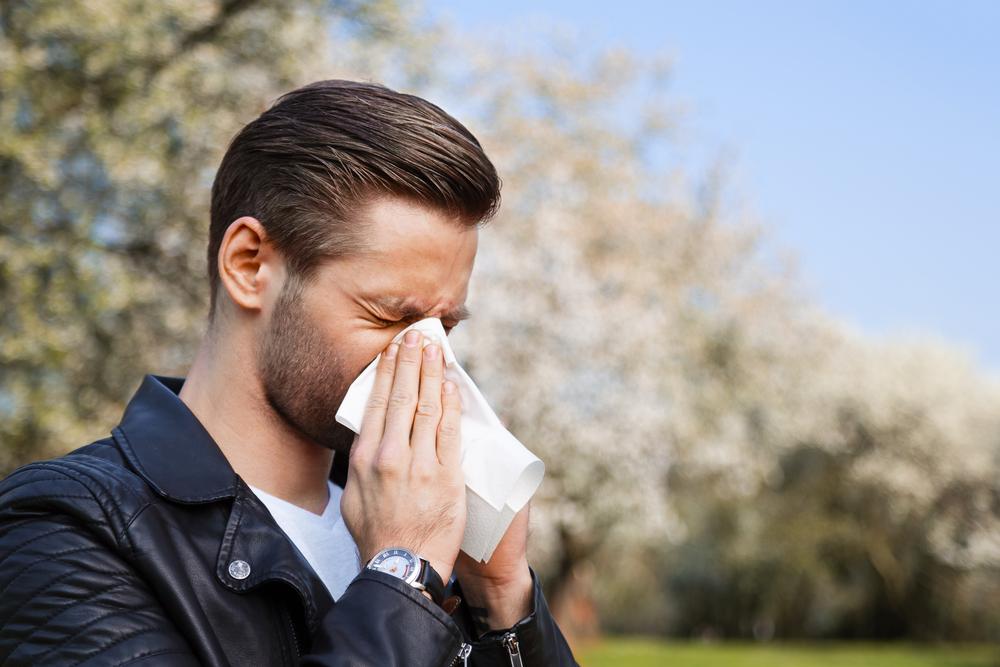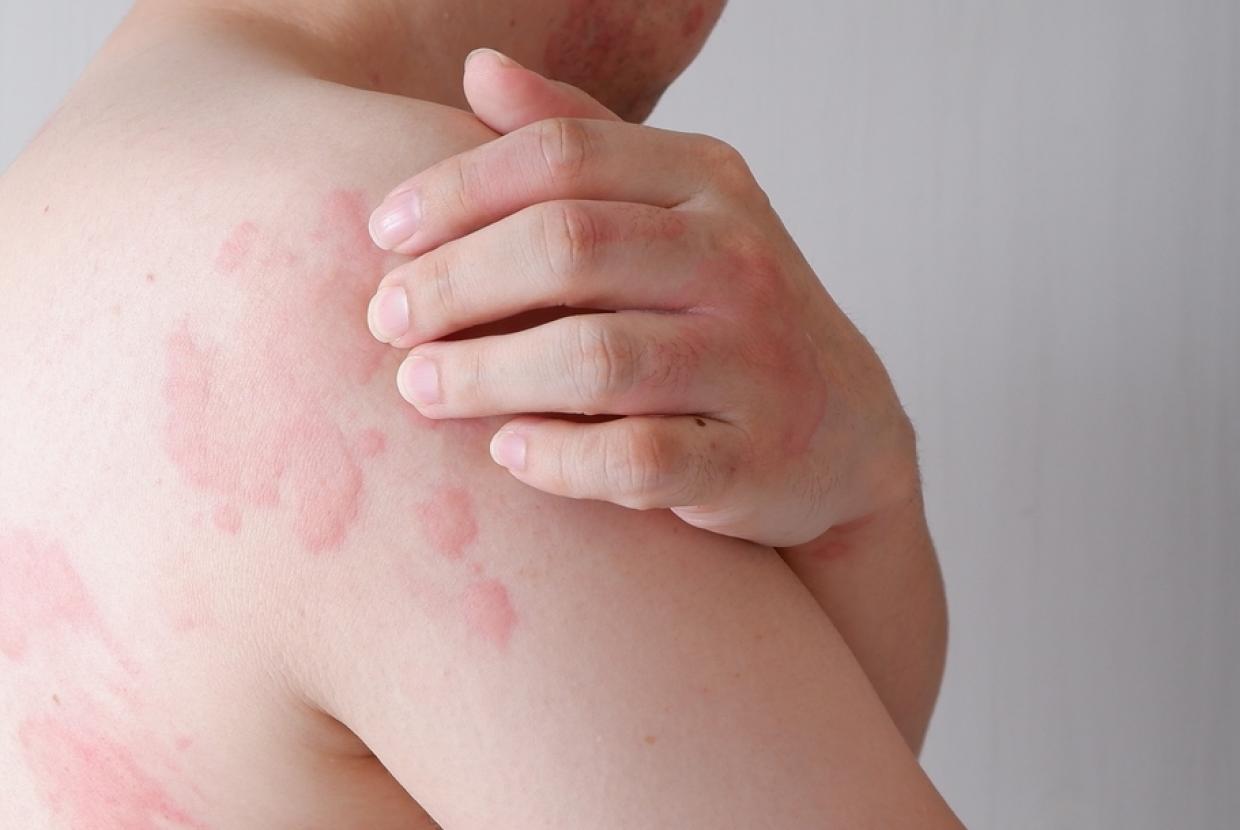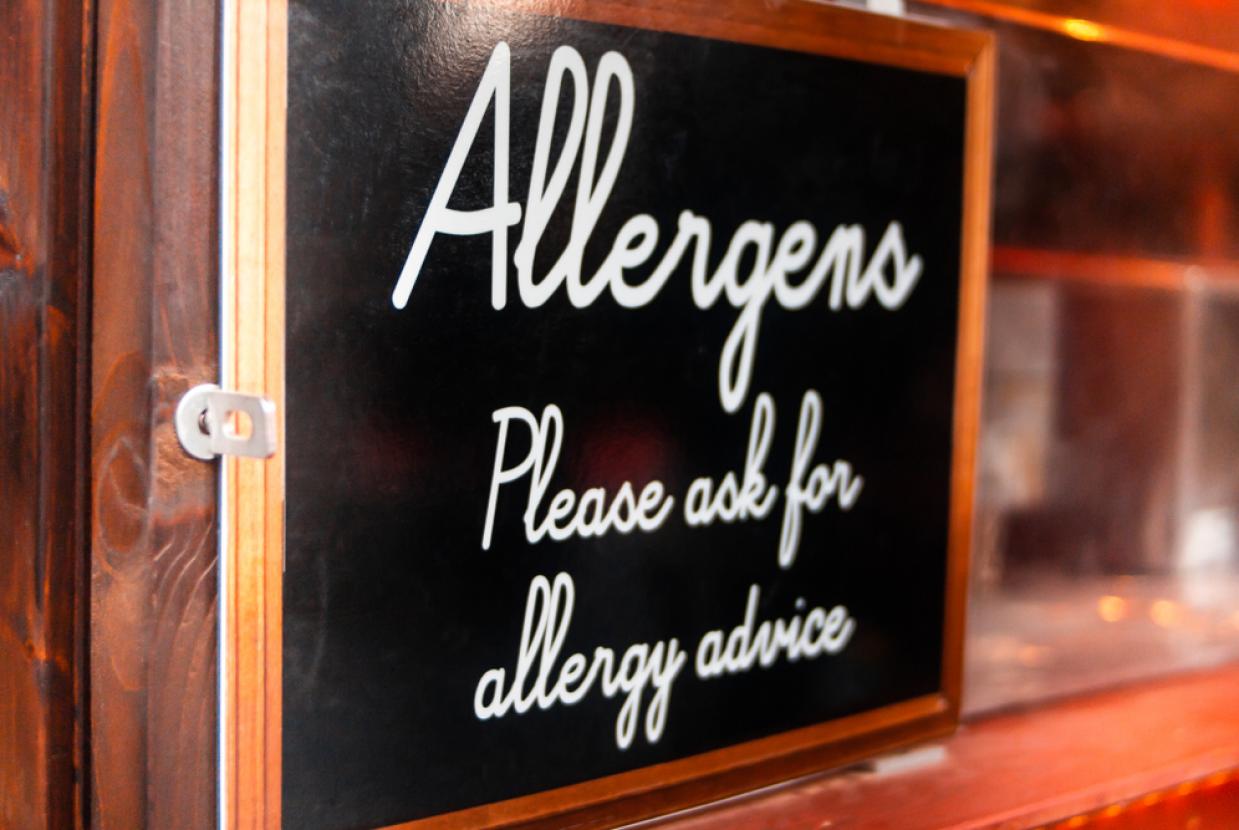Pollen-Food Syndrome (PFS)
Allergies and Asthma / Healthy DietPollen food syndrome (PFS) is usually associated with hayfever (allergic rhinitis). It affects around 2% of the UK population. It is also known as oral allergy syndrome. Symptoms occur soon after eating raw fruits and/or vegetables. In most cases they are mild. Your symptoms could include itching and tingling of the lips, mouth and throat.
Who does pollen food syndrome affect?
PFS affects your immune cells, which recognise the shape of proteins in tree, grass and weed pollens. This triggers the symptoms of hayfever - itchy, watery eyes and sneezing.
Plant proteins found in raw fruits and vegetables, soy and nuts have a similar shape to the pollen proteins. If you have PFS, this may cause itching and swelling of the lips and mouth soon after eating. Peeling vegetables like potatoes can also result in itchy hands/eyes and sneezing.
Pollen is the primary trigger and causes a cross-reaction to plant foods. PFS is sometimes called a secondary allergy. Symptoms are usually mild but PFS can result in anaphylaxis (1.7% of reactions). PFS is more common in adults but can also affect children and teenagers.
How can a dietitian help PFS?
Most people with PFS can tolerate cooked versions of fruit and vegetables. Symptoms are usually mild and triggered by only a few raw fruits and/or vegetables.
There is an increased risk of more severe reactions with concentrated sources of plant allergens. These include smoothies, juices, soy/nut milks or nutritional supplements e.g. based on pea or soya proteins.
Fruits and vegetables are a good source of fibre and micronutrients, including folate. If you are planning to become pregnant this is a particularly important nutrient and you may wish to get support from a dietitian.
You may also need advice if you are vegan, vegetarian, following a plant-based diet or taking plant-based supplements based e.g. in protein supplements or drinks used by body builders.
High street allergy tests are unreliable and the dietary advice can be overly restrictive. Seek advice from your GP and ask for a referral to a specialist allergy centre if:
- You react to multiple plant foods. If you are allergic to many types of pollens – tree, grass and weed you may find you also react to a wide range of plant foods. The average number of plant foods avoided in PFS is around four. If you are concerned that your diet is not varied and you are at risk of deficiencies, ask your GP to do a micronutrient screen and seek the advice of a specialist allergy centre and dietitian. Especially if you have a plant-based, vegan or vegetarian diet.
- Symptoms occur with tinned or adequately cooked plant foods. Seek an allergy referral as you may not have PFS and may have a different plant allergy called LTP allergy.
- You get severe reactions or react to nuts or soya. Severe symptoms include difficulty breathing, wheezing, nausea, vomiting, urticaria (hives or nettle rash) and significant swelling. If you react to nuts further testing will help to identify which proteins are involved. This will also identify your risk of a severe reaction and how strict avoidance needs to be. Most people with PFS do not need to avoid traces (e.g. nuts) but you should seek advice from your allergy centre if you have unexplained or severe symptoms. Soy milks have high levels of one of the common allergens that trigger PFS. They can be associated with severe symptoms, but small amounts of soy in bread, soy sauce and sausages are often tolerated. Seek allergy testing and a dietetic referral for tailored advice if you have reacted to soy products.
How can I eat with this in mind?
Only exclude those plant foods that you react to. Often you only need to avoid these in raw form. Most people can tolerate cooked or tinned versions of the fruits/vegetables which cause symptoms. Sufficient heat alters the protein’s shape and reduces the risk of a reaction. Steaming and microwaving are good methods and help to preserve the vitamin C content. Stir-frying may not cook vegetables sufficiently to prevent symptoms.
Try to increase your intake of the plant foods you do tolerate to ensure your diet remains high in fibre, vitamins and minerals. You may tolerate peeled fruits or vegetables. Larger tomatoes where you can peel and remove seeds may be better tolerated than cherry or small plum tomatoes where this is harder to achieve. Try different varieties - you may not react to all types of apples, for instance.
Reading food labels
UK food labelling laws requires that labels clearly state whether celery, soya, peanut and other nuts are ingredients in a food product. Labels must emphasise these common allergens (e.g. in bold or highlighted) and list them in one place. This is usually in the ingredients label. Fruits and other vegetables will be listed but not emphasised in the ingredients list.
As of 1 October 2021, prepacked for direct sale foods sold in outlets such as bakeries, take-aways and mobile catering outlets must include written labels. Previously, this information could be given verbally or on a menu.
If you have mild PFS, foods with 'May contain…' or 'Made in a factory…' statements are likely to be suitable. Seek expert advice if you have severe or unexplained allergic reactions.
Top tips
- Only avoid the foods that cause symptoms. Most people do this anyway as symptoms are unpleasant
- Aim to have at least 5 portions of tolerated fruits and vegetables a day
- If your reactions are mild, relieve symptoms by drinking water to rinse your mouth out. If symptoms persist, take an antihistamine
- Try cooked or tinned versions of the fruits and vegetables you react to. Most people can tolerate these
- Be careful with fresh smoothies and raw juices - especially if you are not clear on all the ingredients. These can contain large amounts of allergenic proteins. UHT juices are usually well tolerated
- Risk of a more severe reaction increases if you have asthma or hayfever which is poorly controlled. Seek the advice of your GP or allergist on optimising the management of these conditions


